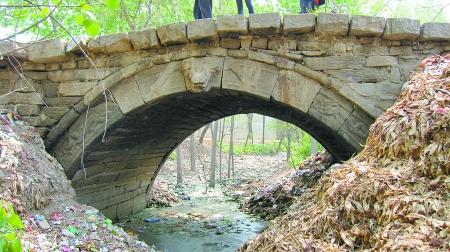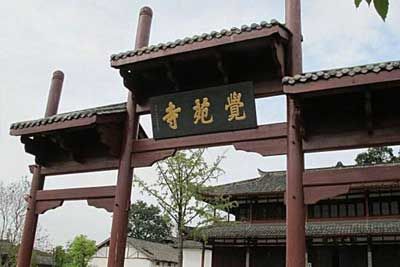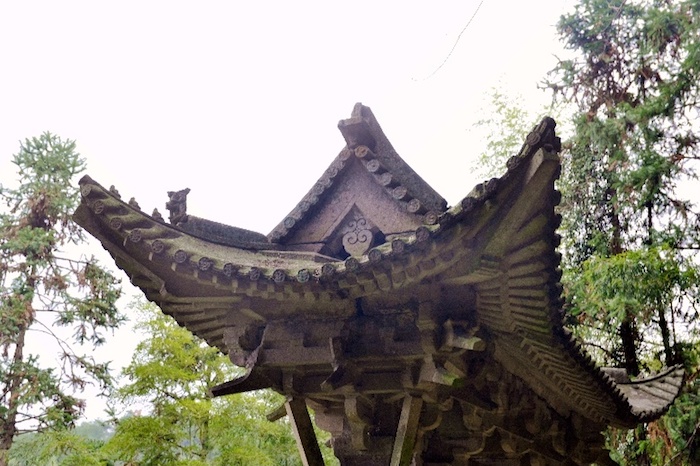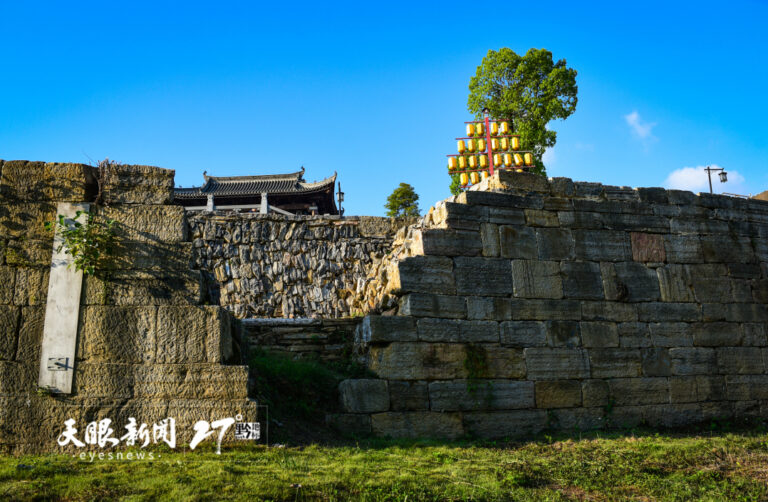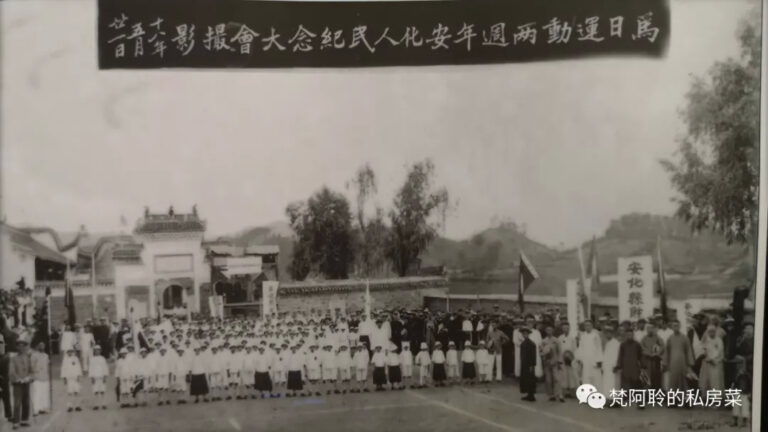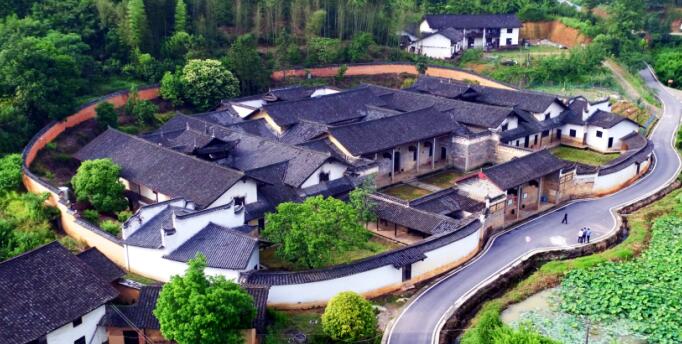A Cultural Journey Through Dazhou Zhenfoshan Miaoqun: History, Nature, and More
An Essential Guide to Visiting Dazhou Zhenfoshan Miaoqun
In This Guide
- An Essential Guide to Visiting Dazhou Zhenfoshan Miaoqun
- The Rich History of Dazhou Zhenfoshan Miaoqun
- Main Highlights: What to See at Dazhou Zhenfoshan Miaoqun
- Planning Your Visit: A Practical Guide
- Tickets, Hours, and Booking
- How to Get There
- Local Cuisine and Accommodation
- Frequently Asked Questions
- Final Thoughts on Your Trip
Nestled in the lush mountains of Sichuan Province, Dazhou Zhenfoshan Miaoqun (真佛山庙群) offers a unique blend of natural beauty and rich spiritual heritage. Often referred to as the “Eastern Potala Palace,” this revered Buddhist site is not only a sanctuary for the soul but also a breathtaking destination for nature lovers and explorers. With steep, winding paths lined with fragrant cedar trees and majestic stone steps leading to the summit, visitors are treated to awe-inspiring panoramic views of the surrounding landscape.
The scenic area is renowned for its ancient temples, including the grand Dehua Temple and the serene Yufoshan Temple, each rich with intricate architecture and cultural significance. The peaceful ambiance is punctuated by the gentle sounds of nature, creating an ideal retreat for those seeking solace or spiritual renewal. As you traverse the 999 stone steps to the peak, each step unfolds a new perspective, inviting reflection and appreciation for both the craftsmanship of the temples and the raw beauty of the environment.
Zhenfoshan is not just a destination; it’s an experience that intertwines the tranquility of the mountains with the profound teachings of Buddhism. Whether you are an avid hiker, a culture enthusiast, or simply in search of a serene escape, Dazhou Zhenfoshan Miaoqun promises an unforgettable journey into a world where nature and spirituality coexist harmoniously. Prepare to lose yourself in the splendor of this hidden gem, where every corner reveals a story waiting to be discovered.
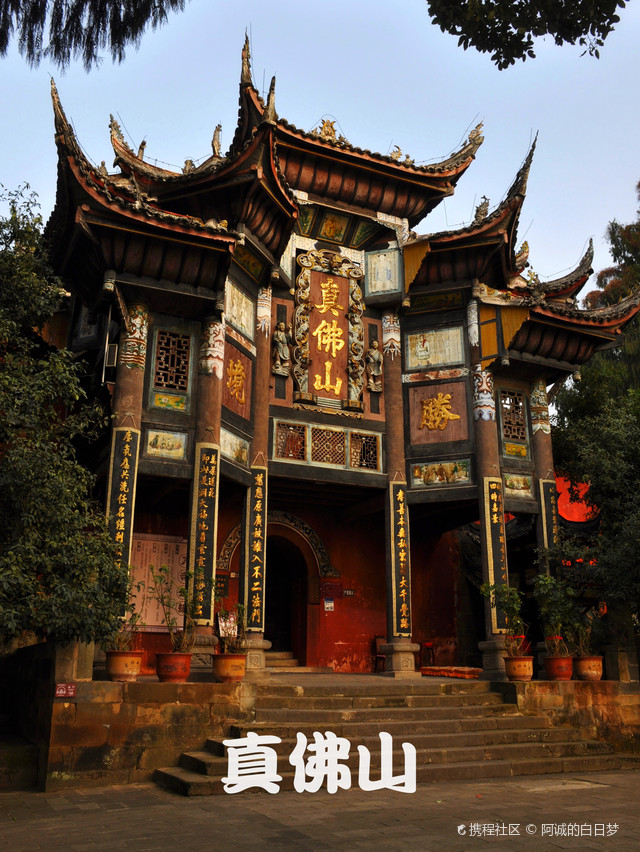
Dazhou Zhenfoshan Miaoqun.
The Rich History of Dazhou Zhenfoshan Miaoqun
The Zhenfoshan Scenic Area, also known as the Zhenfoshan Temple Complex, is a remarkable site nestled in the middle of the Qili Gorge in Dazhou, Sichuan Province. This site, renowned as a significant Buddhist sanctuary, boasts a rich tapestry of history that intertwines with the cultural and spiritual heritage of the region.
The origins of the Zhenfoshan Temple Complex can be traced back over two hundred years to the Qing Dynasty, a period marked by substantial religious and architectural development in China. The complex is not only a sanctuary for Buddhist practices but also incorporates elements of Daoism and Confucianism, representing a harmonious blend of the three major Chinese philosophies. This unique amalgamation has earned Zhenfoshan the title of a cultural tourism destination that draws visitors seeking both enlightenment and natural beauty.
The area is characterized by its steep terrain and lush greenery, with a renowned stone staircase of nearly a thousand steps leading to the summit. This staircase, often likened to a celestial ladder reaching into the clouds, showcases the ingenuity of ancient Chinese architects and builders who harmonized their structures with the surrounding landscape. The natural beauty of Zhenfoshan is complemented by various historical temples, including Dehua Temple, Yufoshan Temple, and Jinguang Temple, each adorned with intricate carvings and symbols that reflect the spiritual ethos of the site.
Historically, Zhenfoshan has been a pilgrimage site for centuries, attracting devotees and tourists alike. The annual temple fair, particularly vibrant during the Lunar calendar’s sixth month, serves as a cultural highlight, where visitors partake in traditional rituals and festivities that celebrate the site’s spiritual significance. This event not only fosters community spirit but also reinforces the temple’s role as a cultural hub for the local population.
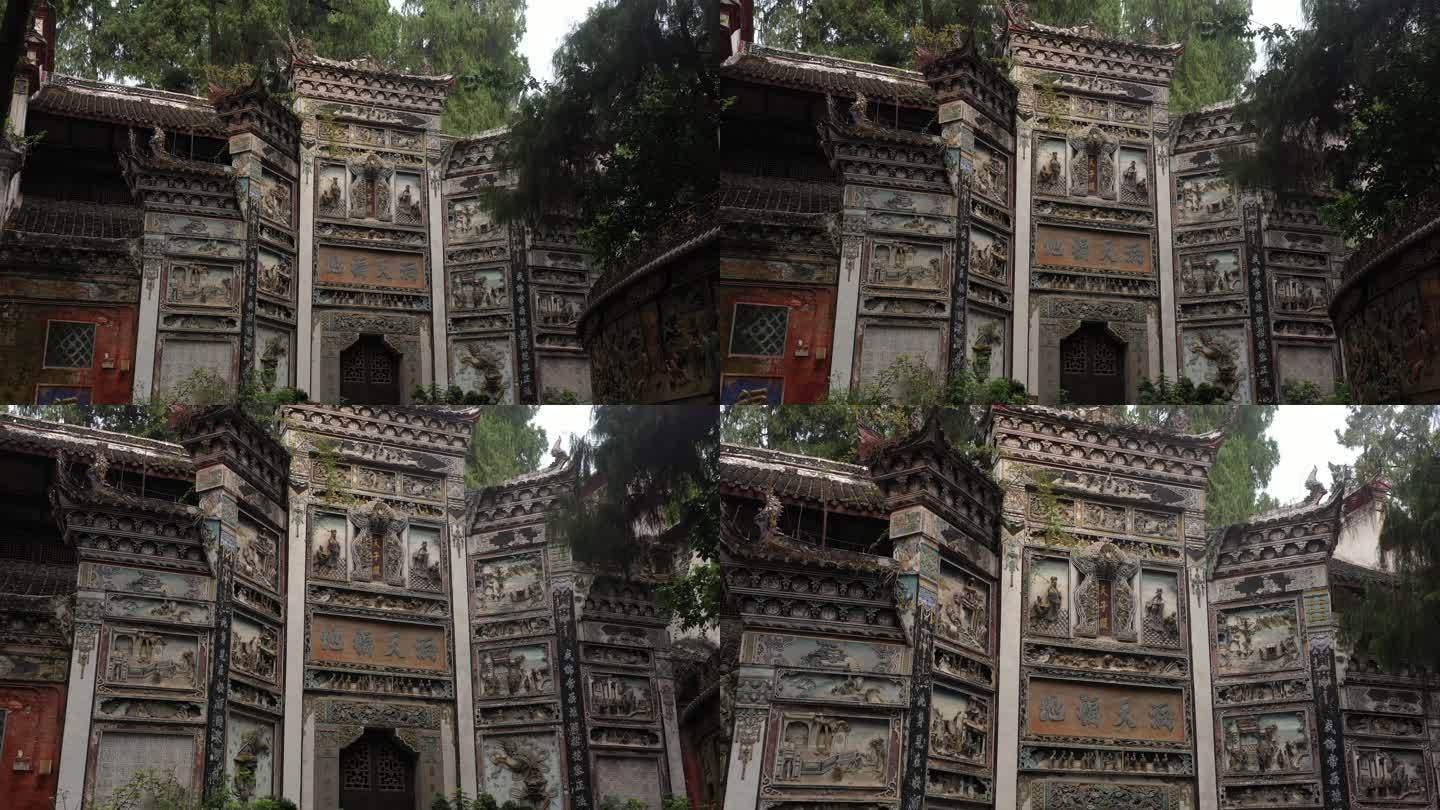
Dazhou Zhenfoshan Miaoqun.
As a result of its historical and cultural importance, Zhenfoshan was designated as a National 4A Scenic Area, reflecting its status as a premier tourist destination. The ongoing preservation efforts aim to maintain the integrity of the complex while enhancing visitor experience, ensuring that this sacred site continues to inspire future generations.
In essence, Zhenfoshan is more than just a scenic spot; it is a testament to the rich historical narrative of Dazhou and a reflection of the profound spiritual journey that has been undertaken by countless individuals over the centuries. Its combination of natural beauty, architectural marvels, and deep-rooted traditions make it a must-visit for anyone looking to explore the cultural depths of Sichuan Province.
Main Highlights: What to See at Dazhou Zhenfoshan Miaoqun
Nestled in the scenic hills of Dazhou, Sichuan, Zhenfoshan Miaoqun offers a captivating blend of natural beauty and rich cultural heritage. This renowned Buddhist pilgrimage site, often referred to as the “Eastern Potala Palace,” invites visitors to explore its stunning landscapes and historical significance. Here are the main highlights of this remarkable destination:
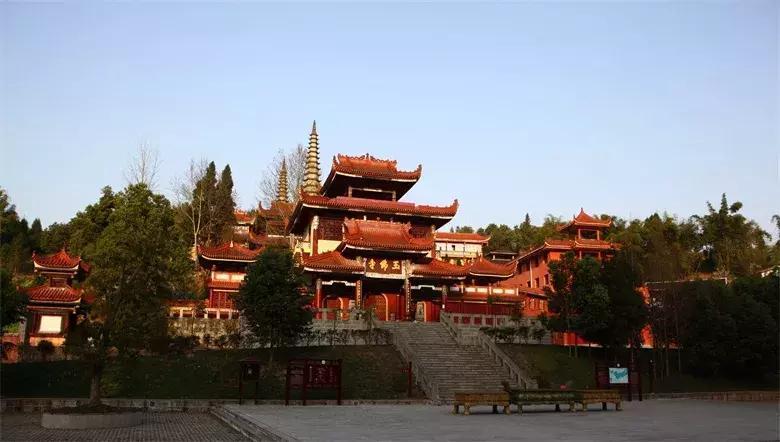
Dazhou Zhenfoshan Miaoqun.
Breathtaking Natural Scenery
Zhenfoshan is characterized by its steep terrain and lush vegetation, which create a stunning backdrop for a tranquil escape. The area is adorned with towering pines and fragrant camphor trees, enhancing its serene atmosphere. The journey to the summit involves ascending a magnificent staircase of 999 stone steps, affectionately dubbed the “Cloud Ladder,” providing adventurers with panoramic views of the surrounding mountains and valleys.
Architectural Wonders
The complex is home to various temples, including Dehua Temple, Yufuo Temple, and King Kong Temple, each showcasing intricate architectural styles that reflect the melding of Confucianism, Buddhism, and Taoism. The temples are not only places of worship but also repositories of history, featuring detailed sculptures and ancient inscriptions that tell the story of the region’s spiritual past.
Cultural Significance
Zhenfoshan Miaoqun is not just a natural wonder; it is also a spiritual haven. During the Lunar calendar’s sixth month, the area hosts lively temple fairs that draw pilgrims and tourists alike, creating a vibrant atmosphere filled with traditional music, dance, and local delicacies. Visitors can immerse themselves in the local culture, experiencing firsthand the community’s deep-rooted beliefs and customs.
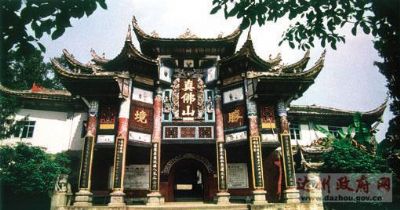
Dazhou Zhenfoshan Miaoqun.
Outdoor Activities
For those who enjoy outdoor adventures, Zhenfoshan offers various hiking trails that cater to different skill levels. Whether you are seeking a leisurely stroll through the forest or a challenging trek to the peak, the stunning vistas along the way make the effort worthwhile. The area is also perfect for photography, especially during sunrise and sunset when the landscape is bathed in golden light.
Accessibility
Located approximately 35 kilometers from the city center of Dazhou, Zhenfoshan is easily accessible by public transport or private vehicles. The scenic drive to the site is an experience in itself, with beautiful countryside views that set the tone for your visit.
Culinary Delights
After a day of exploration, indulge in the local cuisine. Dazhou is famous for its spicy dishes, such as the renowned “Dengying Beef” and “Sour and Spicy Noodles,” which are perfect for refueling after a day of hiking.
Zhenfoshan Miaoqun is a perfect destination for those looking to connect with nature while delving into the rich tapestry of Chinese culture and spirituality. Whether you’re a history buff, a nature lover, or simply seeking tranquility, this scenic area promises an unforgettable experience.
Planning Your Visit: A Practical Guide
Practical Guide to Dazhou Zhenfoshan Miaoqun
Location and Overview
Dazhou Zhenfoshan Miaoqun, also known as the Zhenfo Mountain Temple Complex, is situated in the scenic Fushan Town of Dazhou City, Sichuan Province. Nestled within the majestic Qili Gorge Mountains, this renowned Buddhist site is approximately 35 kilometers south of Dazhou’s city center. With an elevation of 710 meters, Zhenfoshan offers breathtaking views, steep terrains, and a tranquil natural environment, making it a perfect retreat for both spiritual seekers and nature enthusiasts.
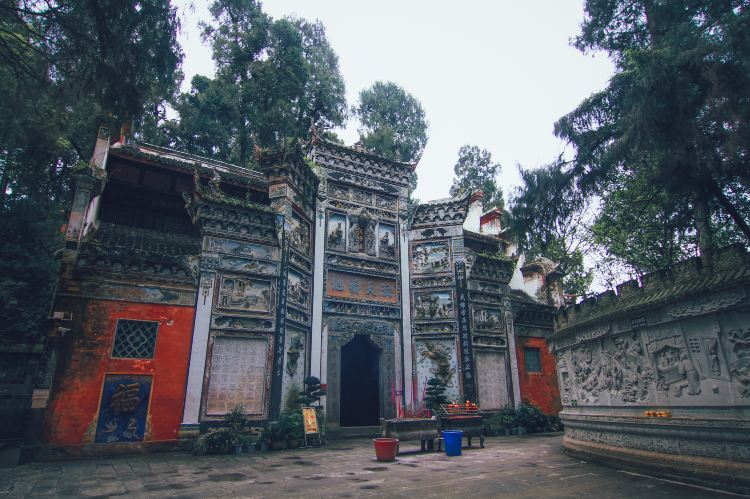
Dazhou Zhenfoshan Miaoqun.
Getting There
– By Air: The nearest airport is Dazhou Jinya Airport, which connects to major cities like Beijing, Guangzhou, and Shenzhen. From the airport, you can take a taxi or arrange for a pickup to reach Zhenfoshan.
– By Train: Dazhou Railway Station is well-connected via high-speed trains from cities such as Chongqing (1.5 hours), Chengdu (3 hours), and Xi’an (4 hours). Once in Dazhou, local transportation options like buses or taxis can take you to the temple complex.
– By Car: If you’re driving, Zhenfoshan is easily accessible via the G42 Expressway. The journey from Dazhou city takes about 40 minutes.
Visiting Hours and Duration
The temple complex is open to visitors daily from 9:00 AM to 5:00 PM, with the last entry at 5:00 PM. It is recommended to allocate approximately 3 to 5 hours for your visit to fully explore the temples and the natural surroundings.
Entrance Fee
The entrance fee for Zhenfoshan is approximately 34 RMB for non-residents and 15 RMB for local residents. Be sure to carry some cash, as electronic payments may not be accepted everywhere.
What to Expect
– Temple Architecture: Zhenfoshan boasts a harmonious blend of Buddhist, Taoist, and Confucian architectural styles, with structures like Dehua Temple and Yufosi Temple showcasing intricate designs and serene environments.
– Nature Trails: The journey to the summit includes a stunning pathway of nearly a thousand stone steps, flanked by lush cypress and camphor trees. The ascent offers panoramic views and a refreshing atmosphere.
– Cultural Events: The temple complex is a vibrant cultural hub, especially during traditional festivals. The June 1st lunar calendar temple fair is particularly lively, attracting pilgrims and tourists alike.
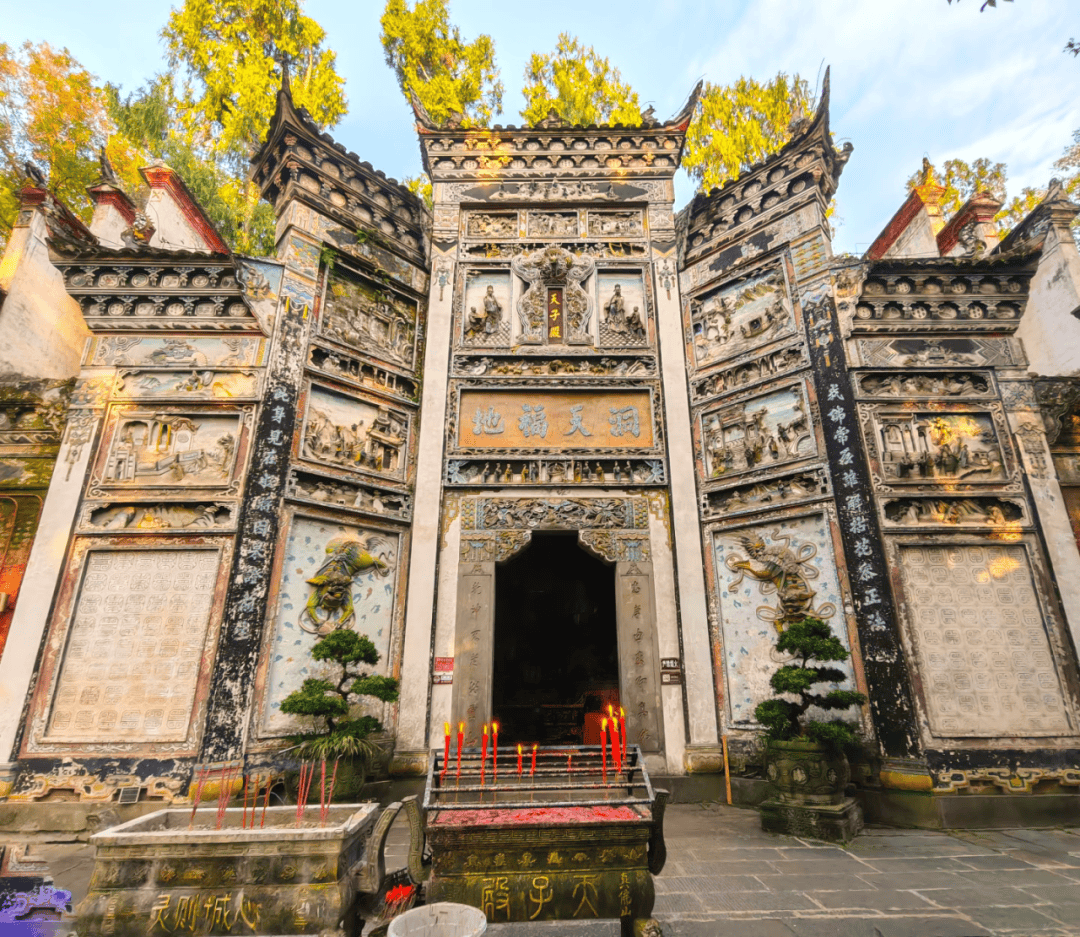
Dazhou Zhenfoshan Miaoqun.
Tips for Travelers
– Best Time to Visit: The ideal seasons for visiting Zhenfoshan are spring (April to June) and autumn (September to October) when the weather is mild, and the surrounding foliage is vibrant.
– Safety Precautions: The mountainous areas can be slippery, especially during rainy seasons, so wear sturdy shoes and consider bringing a light jacket for cooler temperatures.
– Respect Local Customs: Photography is generally not allowed inside the temples, so be respectful of the sacred environment. When taking photos near statues, it’s courteous to ask for permission.
– Dining Options: Local eateries near the entrance serve traditional Sichuan dishes. Don’t miss trying the local specialties such as “Dazhou cold noodles” and “spicy chicken” after your visit.
Accommodation
For those wishing to extend their stay, consider the following options:
– In Dazhou City: The Dazhou Phoenix International Hotel and Jindong Hotel offer comfortable accommodations close to the city center.
– Near Zhenfoshan: For a unique experience, look for guesthouses or homestays that provide a local ambiance and easy access to the temple complex.
Conclusion
Dazhou Zhenfoshan Miaoqun is an enchanting blend of nature, spirituality, and culture. Whether you’re trekking up the stone steps to the temples or soaking in the serene landscapes, this destination offers a refreshing escape from the hustle and bustle of city life. Prepare for a journey that not only nourishes the spirit but also captivates the senses with its breathtaking views and rich history.
Tickets, Hours, and Booking
When planning a visit to the breathtaking Dazhou Zhenfoshan Miaoqun (真佛山庙群), it’s essential to be informed about the ticketing details to ensure a smooth experience.
Ticket Information
-
General Admission: For visitors with a local ID, the ticket price is ¥15. For those holding an out-of-town ID, the price is ¥34.
-
Opening Hours: The scenic area is open daily from 9:00 AM to 5:00 PM. However, be mindful that entry stops at 5:00 PM, so plan your arrival accordingly to make the most of your visit.
-
Suggested Visit Duration: It is recommended to allocate 3 to 5 hours for a thorough exploration of the area, allowing time for hiking the stone steps and visiting the various temples.
-
Transportation to the Site: The Zhenfoshan Scenic Area is located approximately 35 kilometers from Dazhou city center. Visitors can reach the site via local bus services or taxis, with options to drive for convenience.
-
Parking Availability: There is sufficient parking space available at the entrance for those who choose to drive.
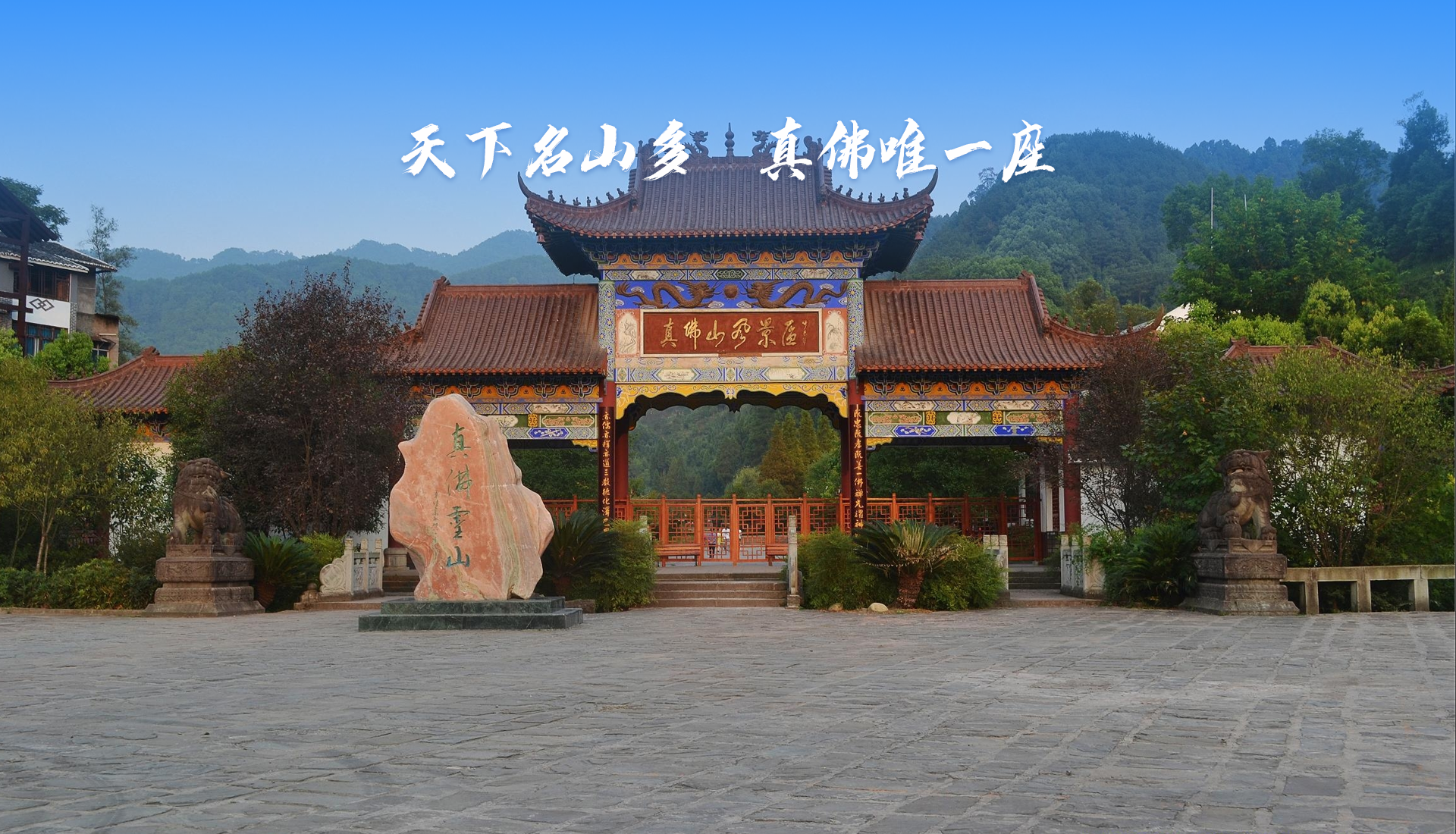
Dazhou Zhenfoshan Miaoqun.
Additional Tips
- Bring Cash: While some vendors may accept digital payments, it’s wise to carry cash for ticket purchases and other small expenses.
- Plan for Weather: The area can be prone to sudden weather changes; dressing in layers and wearing comfortable shoes is advisable for the hike.
By keeping these details in mind, you can ensure that your journey to the Zhenfoshan Miaoqun is both enjoyable and hassle-free.
How to Get There
Getting to and around the Zhenfoshan Miaoqun (真佛山庙群) in Dazhou is a pivotal part of your visit, especially given its mountainous terrain and scenic beauty. Here’s a detailed guide to help you navigate your transportation options.
Arrival in Dazhou
Dazhou is well-connected to major cities in China, making it easily accessible for both domestic and international travelers.
-
By Air: The most convenient airport is Dazhou Jinya Airport (达州金埡机场), which opened in 2022. It has regular flights to and from major cities such as Beijing, Shanghai, Guangzhou, and Shenzhen. From the airport, you can take a taxi or arrange for airport transfer services to reach the city center or directly to Zhenfoshan.
-
By Train: Dazhou has two major train stations: Dazhou Station and Dazhou South Station. High-speed trains connect Dazhou to cities like Chengdu (approximately 3 hours), Chongqing (about 1.5 hours), and Xi’an (around 4 hours). Once you arrive at Dazhou, you can use local transport options to get to Zhenfoshan.
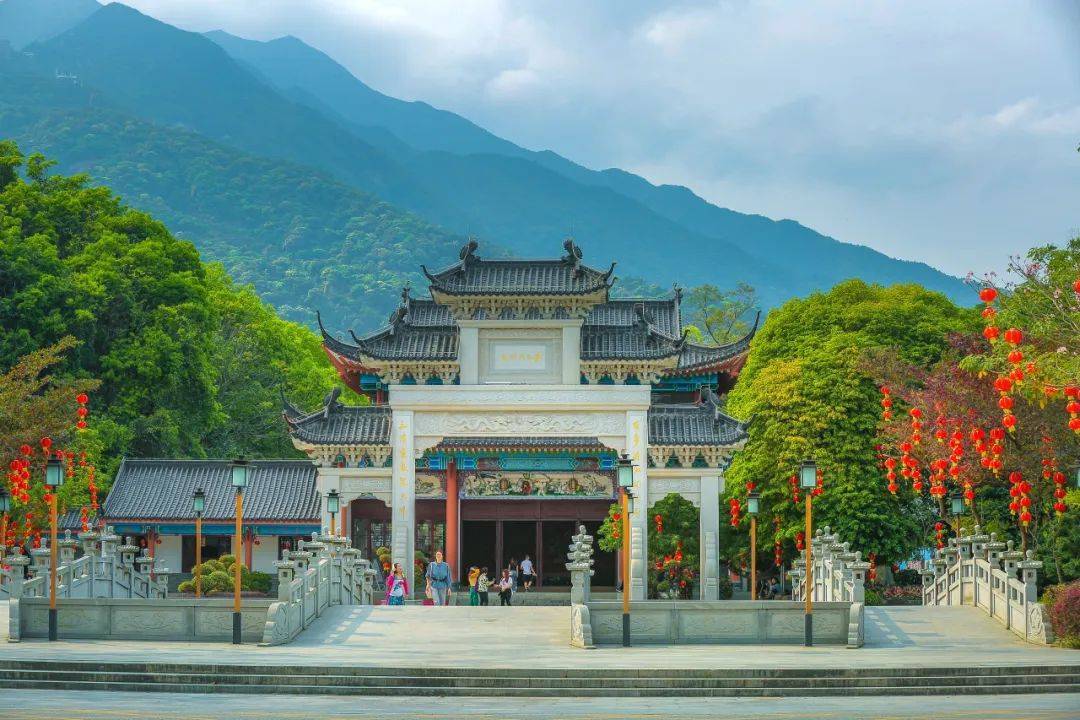
Dazhou Zhenfoshan Miaoqun.
Local Transportation
-
Public Transport: Dazhou has a reliable bus network that can take you to various attractions within the city. Buses are economical, but schedules may be less frequent on weekends and holidays.
-
Taxi Services: Taxis are widely available and a convenient option for getting around Dazhou, with a starting fare of around 6 CNY. You can hail a taxi on the street or use ride-hailing apps that operate in the area.
-
Private Car Rentals: For those wishing to explore the surrounding countryside or travel to Zhenfoshan directly, renting a car is a great option. This allows you the flexibility to stop at scenic spots along the way. However, it’s essential to be cautious when driving in mountainous areas, as the roads can be steep and winding.
Getting to Zhenfoshan
-
From Dazhou City Center: Zhenfoshan is approximately 35 kilometers from the city center. The most straightforward way to get there is by taxi, which should take about 40 minutes depending on traffic. Alternatively, you can take public transport or a shuttle bus heading towards 福善镇 (Fushan Town), which is near the entrance to the mountain.
-
Parking: If you decide to drive, Zhenfoshan offers parking facilities near the entrance. Ensure to arrive early, especially during weekends or holidays, to secure a spot as the area can get crowded.
Travel Tips
-
Best Time to Visit: The ideal time to explore Zhenfoshan is from April to October when the weather is pleasant. Avoid visiting during the rainy season, as the mountain paths can become slippery.
-
Prepare for Climbing: The ascent to the temple complex involves climbing about 999 stone steps. Wear comfortable shoes and bring water to stay hydrated.
-
Respect Local Customs: When visiting the temples, maintain a respectful demeanor and be mindful of the local customs, especially regarding photography and noise levels.
By following this transportation guide, you can ensure a smooth travel experience to Zhenfoshan Miaoqun, allowing you to focus on enjoying the spiritual and natural beauty that awaits you.
Local Cuisine and Accommodation
When visiting the enchanting Zhenfoshan Miaoqun (真佛山庙群) in Dazhou, the culinary delights and accommodation options will enhance your experience at this cultural and natural gem. Here’s a guide to the best places to eat and stay during your visit.
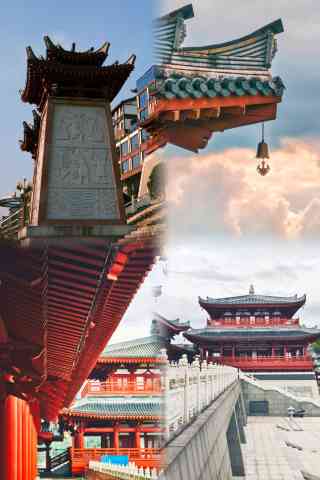
Dazhou Zhenfoshan Miaoqun.
Culinary Highlights
- Traditional Sichuan Cuisine
-
Dengying Beef (灯影牛肉): This iconic dish features thinly sliced beef, seasoned with a mix of spices to create a crispy, spicy snack that’s a must-try when in Dazhou. For the most authentic experience, visit the “Chuanhanzi” restaurant, renowned for its traditional methods.
-
Sour and Spicy Noodles (酸辣粉): Made from sweet potato starch, these noodles are served in a tangy broth that packs a punch. Head to “Lijia Liangfen,” located in the old city, to savor this local favorite.
-
Local Specialties
-
Mutton Gege (羊肉格格): Enjoy freshly steamed mutton served in bamboo baskets, accompanied by spicy potato shreds. This dish is perfect for those craving something hearty and flavorful.
-
Seven Star Pepper Braised Dishes (七星椒滷菜): Experience the unique flavor of spicy duck neck and chicken feet, often enjoyed as a snack. Locals frequently grab these as a quick treat, especially from street vendors.
-
Night Market Experience
- Central Square Night Market: Dive into Dazhou’s vibrant nightlife at this bustling market, where you can find a variety of street food including barbecued meats, spicy skewers, and local beers. It’s the perfect spot to mingle with locals and taste popular dishes in a lively atmosphere.
Accommodation Options
- City Center Comfort
-
Dazhou Phoenix International Hotel (达州凤凰国际酒店): This upscale hotel offers modern amenities and is situated conveniently near shopping areas and local attractions, making it a great choice for travelers looking for comfort and convenience.
-
Jinlong Hotel (金龙酒店): A well-established four-star hotel, it is known for its excellent service and comfortable rooms, making it an ideal base for your adventures in Dazhou.
-
Scenic Retreats
-
Baitai Mountain Stargazing Hotel (八台山星空酒店): Nestled close to Bai Tai Mountain, this hotel provides a unique experience with stunning views of the night sky, perfect for nature lovers and stargazers alike.
-
Baishi Xiaoshan Homestay (百里峡桑树坪民宿): For a more rustic experience, consider this homestay, where you can immerse yourself in the local Tujia culture while enjoying the beautiful natural surroundings.
Whether you are indulging in the rich flavors of Sichuan cuisine or relaxing in comfortable accommodations after a day of exploring the spiritual and natural beauty of Zhenfoshan, Dazhou offers a delightful experience for every traveler. Enjoy your journey!
Frequently Asked Questions
-
What is Dazhou Zhenfoshan Miaoqun?
Dazhou Zhenfoshan Miaoqun, also known as the Zhenfo Mountain Temple Complex, is a renowned Buddhist site located in Dazhou, Sichuan Province, China. It features a collection of ancient temples and breathtaking natural landscapes, making it a popular destination for both spiritual seekers and nature enthusiasts. -
How do I get to Zhenfoshan?
The Zhenfoshan Scenic Area is accessible by various modes of transportation. The nearest airport is Dazhou Jinya Airport, which connects to several major cities. From the airport or Dazhou railway station, you can take a taxi or a local bus to reach the temple complex, which is approximately 35 kilometers from Dazhou city center. -
What are the opening hours of Zhenfoshan?
The Zhenfoshan Scenic Area is open daily from 9:00 AM to 5:00 PM, with the last entry allowed at 5:00 PM. Visitors are encouraged to plan their visit accordingly to fully explore the site. -
How long should I plan to spend at Zhenfoshan?
It is recommended to allocate around 3 to 5 hours for your visit to Zhenfoshan. This should give you ample time to hike the scenic trails, explore the temples, and take in the surrounding natural beauty. -
Is there an entrance fee for Zhenfoshan?
Yes, there is an entrance fee to access the Zhenfoshan Scenic Area. Ticket prices may vary depending on the season and any special events, so it’s advisable to check in advance or upon arrival for the latest pricing information. -
What should I wear when visiting Zhenfoshan?
Comfortable, sturdy footwear is recommended as the area features steep stone steps and hiking trails. Additionally, dressing in layers is advisable, as the weather can change quickly in mountainous regions. Don’t forget a hat and sunscreen for sun protection. -
Are there any dining options near Zhenfoshan?
Yes, there are several local restaurants and eateries near the Zhenfoshan Scenic Area where you can enjoy traditional Sichuan cuisine. It’s a good idea to try local specialties like spicy beef and various noodle dishes. -
Can I take photographs at Zhenfoshan?
Yes, photography is allowed in most areas of Zhenfoshan, but visitors are asked to be respectful, especially in religious spaces. Always check for any specific rules regarding photography near temples or sacred sites to ensure a respectful visit.
Final Thoughts on Your Trip
Exploring Dazhou Zhenfoshan Miaoqun offers a unique blend of spiritual tranquility and breathtaking natural beauty. As you ascend the steep paths lined with ancient trees and fragrant cypress, each step echoes with the whispers of history and culture that have thrived here for centuries. The majestic temples, such as Dehua Temple and Yufoshan, stand as testaments to the harmonious coexistence of Confucianism, Buddhism, and Taoism, inviting visitors to reflect and rejuvenate.
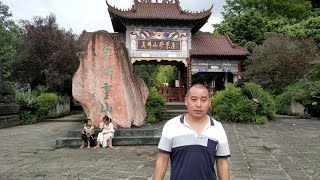
Dazhou Zhenfoshan Miaoqun.
Whether you’re seeking a peaceful retreat to meditate among the serene landscapes or an adventure to conquer the 999 stone steps leading to panoramic views, Zhenfoshan caters to all. The rich tapestry of natural wonders and cultural heritage makes it an ideal destination for travelers looking to immerse themselves in the essence of Sichuan’s charm.
As your journey through this sacred mountain draws to a close, carry with you not just memories of stunning vistas and spiritual encounters, but also a sense of connection to the profound history and vibrant culture of the region. Dazhou awaits, ready to reveal more of its hidden treasures to those willing to explore.
